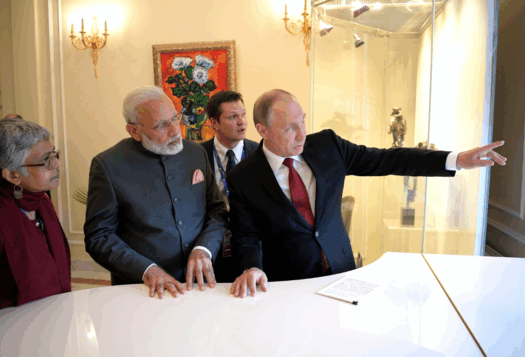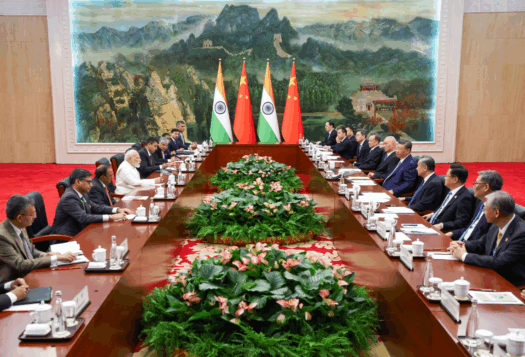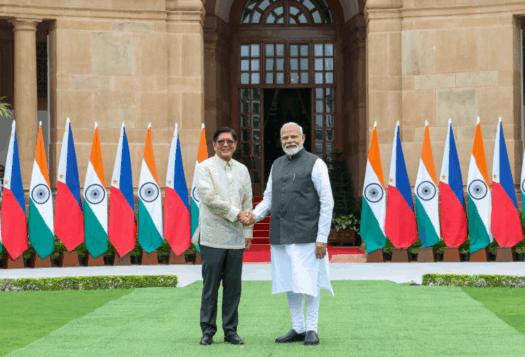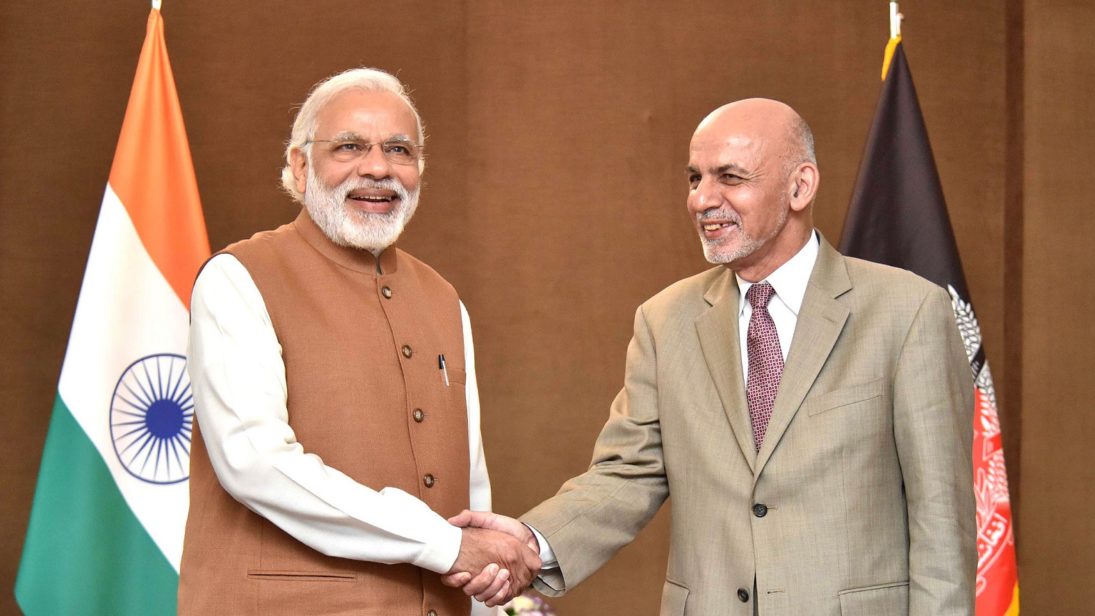
India’s role in Afghanistan in the past two decades or so is defined by its significant contribution towards the development of the country through assistance in reconstruction and rehabilitation efforts while restricting itself from playing an active role in security or the peace process. However, the signing of the peace agreement between the United States and the Taliban on February 29 ignited significant debate within India which, so far, has been hesitant to lend any form of legitimacy to the Taliban. While countries such as Russia and China have accepted the Taliban as a potential political force, India has chosen its words more carefully, reiterating its support for an “Afghan-led, Afghan-owned, and Afghan-controlled” peace process.
The possibility that peace talks would offer the Taliban a legal stake in the Afghan political scenario puts India in a dilemma, owing to the group’s long-standing relationship with Pakistan and ties to militant groups that have engineered attacks against Indian assets. As the United States withdraws from Afghanistan, India risks increased violence and limited influence to contain instability from spilling over into Indian territory. Moving forward, New Delhi requires a more assertive and broader approach to effectively manage the threats to its security emanating from the war-torn country. Continuing with its current policy of keeping engagement limited to Kabul would leave India vulnerable and isolated in a post-U.S. withdrawal Afghanistan, especially in a scenario that has the Taliban entering into some form of power-sharing engagement with the Afghan government. Hence, it is imperative that India reevaluate its position on engaging with the Taliban.
Intra-Afghan Talks: Progress so Far
Continuing with its current policy of keeping engagement limited to Kabul would leave India vulnerable and isolated in a post-U.S. withdrawal Afghanistan, especially in a scenario that has the Taliban entering into some form of power-sharing engagement with the Afghan government. Hence, it is imperative that India reevaluate its position on engaging with the Taliban.
Afghan President Ashraf Ghani has promised to accelerate the process of prisoner release, a necessary precondition for beginning the intra-Afghan talks. A cautious Ghani underlined that the recent temporary ceasefire between the Taliban and the Afghan government creates room for potential peace negotiations. The United States, on the other hand, has decided to commit to an agreement that promises the withdrawal of U.S. forces from Afghanistan by 2021. Both President Donald Trump and presidential candidate Joe Biden have supported pulling out the majority of U.S. troops from Afghanistan.
As the Taliban refuse to cease carrying out attacks against the Afghan security forces, stakeholders have raised questions about their ability to become “faithful partners” in the peace deal. Nevertheless, the latest development suggesting that the Afghan government and the Taliban have finally agreed to hold the first meeting of intra-Afghan peace talks in Qatar indicates relative progress. While a positive beginning, these intra-Afghan negotiations are sure to be fraught with several challenges and disagreements.
India requires a broad-based and comprehensive strategy that allows it to balance its interactions with all the parties involved in Afghanistan. Considering the Taliban’s relative leverage vis-a-vis the Afghan government, it would be difficult for India—consistent in its support for an Afghan-led peace process and deeming the Taliban a terrorist group—to find common ground.
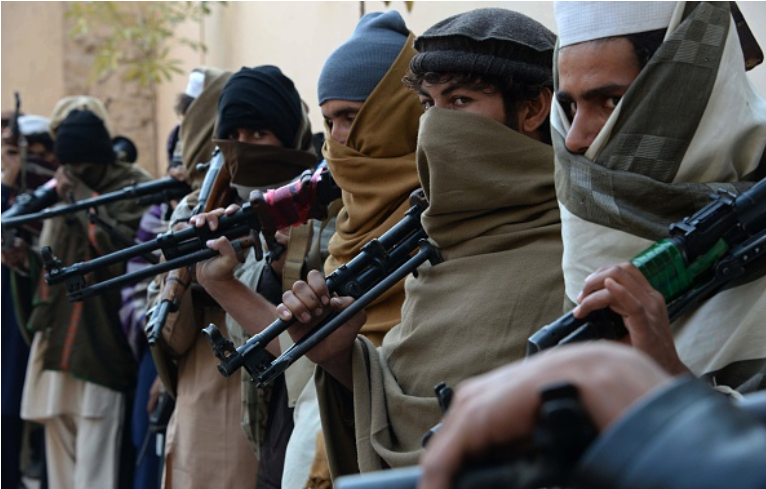
Assessing the Risks
India’s perception of the Taliban is marked by the painful memory of the hijacking of an Indian Airlines flight in 1999 by Pakistan-based militants who were safely escorted by the Taliban. Attacks on Indian embassies and consulates in the following years further hardened India’s stance towards the Taliban. India has made talking to the Taliban a redline, to guarantee its own security. India’s past experiences in establishing contact with the Taliban—to reach an understanding on mutual interests and security—have failed due to Pakistani influence on the group. However, the changing political scenario and the argument that the Taliban have moderated their rhetoric provides India some merit to open talks with the group.
India’s lack of leverage in a changing Afghanistan might motivate this policy change. Most of India’s assistance initiatives in Afghanistan have been supported by security associated with the presence of the United States and allied forces. Post-U.S. withdrawal, then, India would require new partners to guarantee the security of its interests and programs within Afghanistan.
In addition, India’s presence in Afghanistan is restricted by Pakistan, which has opposed its neighbor assuming any security role in the country. Pakistan has traditionally maintained close relations with the Taliban and exercises significant influence in the peace talks. Terror outfits such as the Haqqani network, which are closely tied to the Taliban and have received support from Pakistani intelligence, have targeted Indian workers and institutions in Afghanistan in the past. This represents a serious security threat to India and has generated the fear that Pakistan could use its leverage with the Taliban to escalate violence against India.
India’s goal would thus be to balance its approach towards other stakeholders in Afghanistan without forsaking its support for the Afghan government. As part of this, India needs to broaden its political and diplomatic engagement within Afghanistan. It can leverage its relationship with countries like Russia and Iran, which are already engaged in talks with the Taliban and have worked to promote the current intra-Afghan talks. The threat posed by Pakistan and its proxies to a vulnerable India in a post-U.S. withdrawal Afghanistan poses a far greater risk to India than opening dialogue with the Taliban.
India’s Role in the New Reality
India should abandon its “wait and watch” policy and adopt a more risk-acceptant approach in Afghanistan, including engaging with the Taliban. Should the intra-Afghan talks succeed, the Taliban would enter into some form of power-sharing agreement with Kabul. But India, so far, has not acknowledged the Taliban as a potential stakeholder in Afghan politics. Unlike Russia and China, India has not employed any special envoys to Afghanistan. Although India sent diplomats and officials to the 2018 Russia-sponsored peace conference with the Taliban and to the signing of the peace agreement between the United States and the Taliban in February, they were restricted in their interactions.
The limitations India would face in the current and post-U.S. withdrawal Afghanistan are clear. Any form of power-sharing agreement between the Taliban and the Afghan government or establishment of an interim government would present several challenges. For better or worse, the current Afghan model is well accustomed to power-sharing. But this model gives the impression of pluralism while largely ceding to the elite perspective in the government, belying a deeper instability. Thus, New Delhi would have to adjust its decisions according to the fluctuating leverage of the Kabul government and its potential power rivalries and politics of accommodation.
The threat posed by Pakistan and its proxies to a vulnerable India in a post-U.S. withdrawal Afghanistan poses a far greater risk to India than opening dialogue with the Taliban.
Any policy recalibrations that India undertakes should factor in the threat posed by militant groups including the Islamic State-Khorasan Province (ISKP), the Haqqani network, Jaish-e-Mohammad, and Lashkar-e-Taiba, as well as sustaining its foreign aid to Afghanistan. Enhanced cooperation with the Afghan intelligence service and the National Directorate of Security along with expanding its networks within Afghanistan—including with Taliban elements—would enable India to better protect its interests.
Amplifying its impact in Afghanistan will not be easy for New Delhi and is certain to face challenges. These include Pakistan’s growing influence, concerns of threats to its security, and distribution of financial resources of which the Taliban could become a recipient. The possible integration of Taliban fighters into the Afghan military would also be a moral dilemma for India, which has been providing training to the Afghan forces.
However, if India wants to sustain its presence in Afghanistan, it will have to determine what it is willing to do to guarantee itself a seat in the crowded theater of stakeholders in Afghanistan. Apart from offering capacity-building support, India would likely have to create space for itself in political negotiations concerning the future of Afghanistan. New Delhi’s aim should be to adopt a maximalist position, as seen in the case of the United States, and establish diplomatic engagement with the Taliban and other parties of the Afghan political society.
Editor’s Note: In this series, SAV contributors from Afghanistan, India, Pakistan, and the United States weigh in on regional perspectives of Afghanistan’s future. Contributors discuss key trends that regional actors and the United States are watching for in the months and years ahead, the role each actor may play in the intra-Afghan negotiating process, and their stake in Afghanistan’s future stability and governance. Read the full series here.
***
Image 1: Narendra Modi via Flickr
